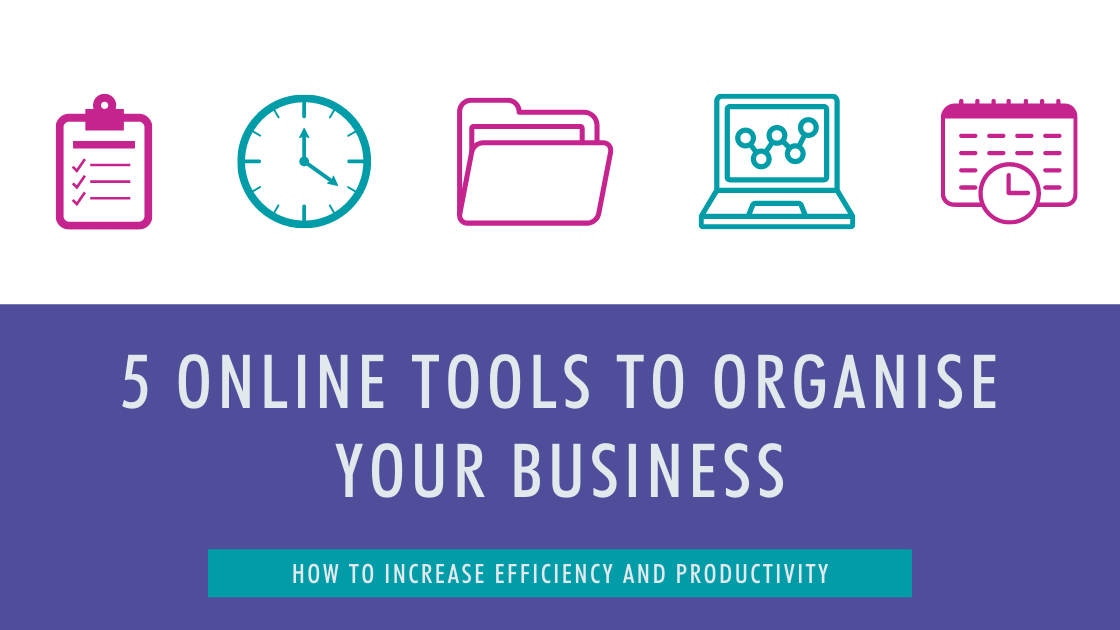There are many ways to make running your small business easier. This month’s blog looks at five areas where online tools can help to make your business more efficient and increase productivity.
Using an online to-do list or project management software can sound scary but is an excellent way to help you get more organised very quickly. You can use apps on your phone or tablet to carry your lists with you at all times, share with others and never have to worry about losing your to-do list again.
For an individual to-do list both Outlook and Gmail have Tasks – easy-access lists where tasks can be added manually or by simply dragging an email and dropping it into the list. In both programmes you can add notes and deadlines and mark the task complete with one click.
If you run a small team or work with multiple clients then a project management tool like Trello or Asana might be a better fit. These tools enable you to have different areas for each project/client and share areas, tasks and workflows with team members.
Keeping track of time
Online time-tracking software is a must if you work with different clients, if you’re prone to procrastination, or if you want to track your productivity.
There are dozens of different tools out there and it can feel a bit overwhelming at first. If you’re new to time-tracking Toggl or Clockify are good places to start.
Both tools are easy to use and have free versions for individual use as well as paid versions for team use and with more functionality.
Keeping track of files
When you work with clients or team members remotely it can be frustrating working on a document and then finding out it wasn’t the latest version. This issue can be easily solved by using an online shared filing system.
It saves you constantly emailing files and ensures you always have the most up-to-date version.
Microsoft 365 users have One Drive, from where you can share files with other Microsoft users. For more flexible options Dropbox and Box.com are the best free storage programmes, with paid versions for extra space and multiple users.
Keeping track of numbers
Online accounting software is a must for busy small business owners. These programmes can link to your bank account/s to record all your income and outgoings and enable you to log receipts and expenses via the app while you’re out and about. You can also grant access to your accountant or bookkeeper, saving you huge amounts of time when it comes to the annual tax return.
Xero and Quickbooks are the most popular tools on the market and offer various packages. If you need to convert timesheets to invoices take a look at FreeAgent – it combines accounting and time tracking software and saves me hours each month.
Keeping track of the day
If you find that you double-book your time, end up in back-to-back meetings and your diary is always full to bursting then you will benefit from using appointment scheduling software.
There are plenty of apps that enable you to set your availability, block out free time and sync the app to your online diary. Then instead of searching for a slot each time someone wants a meeting, just send them the link to your availability calendar. They can easily see what fits with their diary and you’re not tempted to squeeze them in to your free time.
The best app to start with is Calendly – it has free and paid versions and syncs with both Outlook and Gmail.
All of the apps and software I’ve highlighted here have either a free version or a free trial. Put aside some time to explore the features and see what works for you. If you need any guidance on how to maximise efficiency and productivity in your business just get in touch.


 RSS Feed
RSS Feed



